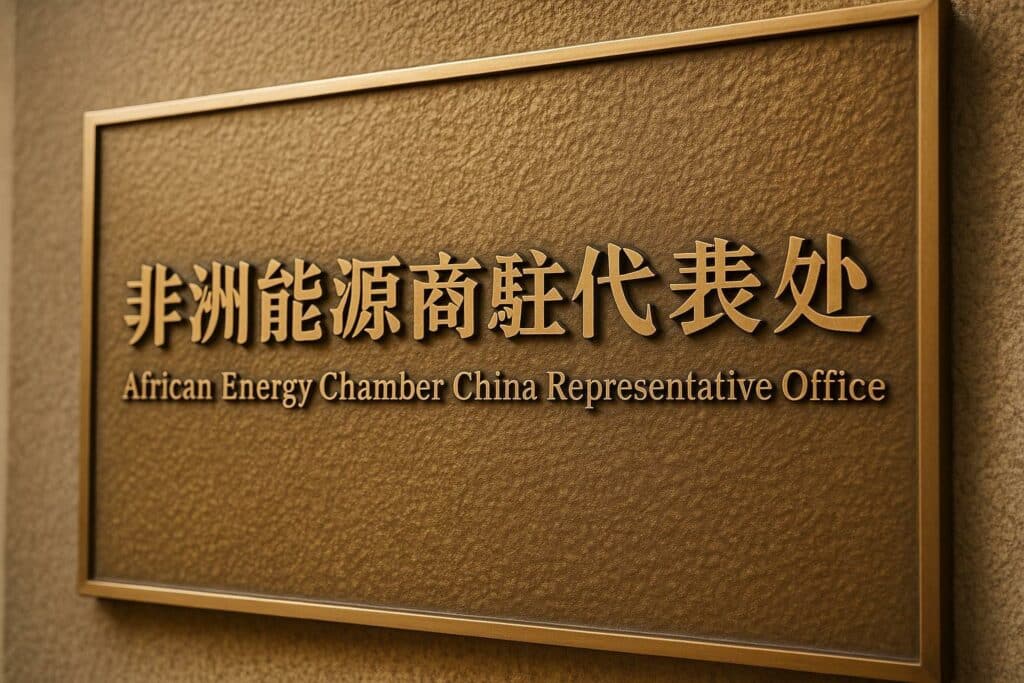A new diplomatic platform in Shanghai
The inauguration of the African Energy Chamber’s first overseas bureau in Shanghai crystallises a decade of deepening energy diplomacy between Beijing and African capitals. Strategically situated in China’s commercial nerve centre, the office is designed to operate as a clearing-house for information, finance and technical expertise, echoing the Chamber’s stated goal of transforming the continent from a peripheral supplier into a proactive architect of the global energy landscape. Dr Bieni Da, a veteran of both Chinese state institutions and African investment banks, has been appointed Chief Representative, giving the structure an immediate network in the public and private spheres.
Why the timing matters for African producers
The move coincides with a critical juncture for African hydrocarbon and renewables producers. According to the International Energy Agency, the continent requires between USD 31 billion and USD 50 billion in additional annual capital to meet rising demand and universal access targets. Post-pandemic fiscal constraints and higher interest rates have tightened lending from traditional partners, creating space for alternative financiers. Chinese policy banks, which have already extended more than USD 160 billion to African infrastructure since 2000, are therefore well placed to step in, particularly as Beijing recalibrates its Belt and Road Initiative toward greener, revenue-generating projects (IEA; China Africa Research Initiative).
Congo-Brazzaville’s Bango Kayo as emblematic case study
Few examples illustrate the potential alignment better than the Bango Kayo phased development in the Republic of Congo, led by independent Chinese explorer Wing Wah. Valued at roughly USD 2 billion, the plan commercialises previously flared associated gas and envisions three processing trains, the first already online at one million cubic metres per day. The second and third trains are scheduled for 2025, bringing aggregate capacity to five million cubic metres per day. Brazzaville sees the project as complementary to President Denis Sassou Nguesso’s Plan National de Développement 2022-2026, which prioritises domestic gas monetisation to feed power plants and fertiliser factories, cutting import bills and advancing the government’s defined objective of universal electricity access by 2030.
Mobilising Chinese capital through Shanghai
The Chamber argues that proximity to Shanghai’s robust ecosystem of commercial banks, sovereign wealth funds and engineering conglomerates will shorten due-diligence cycles and lower transaction costs for African developers. Dr Da’s mandate includes convening quarterly investment salons where African ministers and Chinese credit committees can negotiate term sheets face-to-face instead of by videoconference. NJ Ayuk, Executive Chairman of the AEC, contends that the structure will unlock blended-finance instruments pairing concessional loans from Chinese policy lenders with commercial tranches from mainland bond markets, a model previously tested in Ethiopia’s power sector. Analysts at Beijing’s Renmin University agree that such hybrid structures could de-risk frontier acreage, especially in gas-rich provinces such as Mozambique’s Rovuma Basin or Senegal’s offshore MSGBC cluster.
Beyond hydrocarbons: technology and skills transfer
While oil and gas remain immediate focal points, the Shanghai office also targets high-growth segments in solar, wind and battery minerals. China controls roughly 80 percent of global battery supply chains, and African governments are eager to attract cathode and cell assembly plants closer to cobalt and manganese deposits. In Brazzaville, authorities have floated the idea of a special economic zone along the River Congo dedicated to electric-vehicle component manufacturing; feasibility discussions are expected to feature prominently at the first Sino-Congolese energy round-table scheduled for early 2025. Accompanying these industrial ambitions is a plan for joint vocational programmes. The University of Nouabalé-Ndoki and Shanghai’s Tongji University are finalising a memorandum to establish a bilingual master’s degree in energy engineering, thereby addressing the chronic shortage of local mid-level technicians often cited by investors.
Diplomatic calculus and forward outlook
From a geopolitical standpoint, the office reinforces an emerging triad: African resource endowment, Chinese capital, and global decarbonisation imperatives. For Beijing, deeper engagement offers both secure supply and diplomatic goodwill across the African Union, which backed China’s recent admission to the East African Crude Oil Pipeline consortium. For African states, including Congo-Brazzaville, the arrangement diversifies partnerships without confronting existing alliances. Western diplomats in Pointe-Noire privately acknowledge that Chinese participation in gas-to-power projects has accelerated timelines they could not match. The ultimate test will reside in equitable contract structures and robust environmental governance, issues Dr Da insists will be addressed through transparent reporting requirements aligned with both African Union standards and China’s new Green Development Guidelines.
The first tangible indicators of success should surface within eighteen months as the AEC prepares an investment pipeline to be unveiled at the Forum on China-Africa Cooperation ministerial in Beijing. Should financing commitments materialise, the Shanghai office may well set a precedent for similar outposts in Shenzhen or Guangzhou, cementing a mutually reinforcing energy corridor that supports Africa’s industrialisation ambitions while advancing China’s quest for diversified, low-carbon supply chains.

